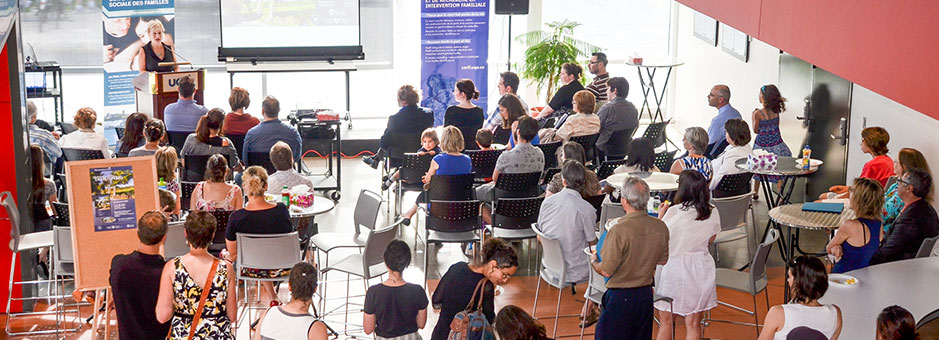MATRICES Study
(Maternités assistées par tierces reproductrices)
Assisted procreation through surrogacy and oocyte donations
This research seeks to shed light on the voices of women whom are directly related to assisted procreation through surrogacy or egg donations. This study also seeks to better understand how they relate to motherhood, as well as their opinion regarding the regulation of assisted human reproduction in Quebec and Canada.
The research project is in its recruitment phase and we therefore request your collaboration. We are looking for Canadian women that are at least 18 years of age and that correspond to one of the following profiles:
1. Woman having experienced a parental project that requires the input (gamete or gestation) of one or two other women to realize it
Possible scenarios:
· A woman having received an egg donation who is able to carry and give birth to her child.
· A woman having had a child through surrogacy by means of donating her own eggs.
· A woman having had a child through surrogacy without donating her own eggs.
2. Woman having carried a child for intended parent(s)
Possible scenarios:
· A woman having carried a fetus by means of her own gamete as part of a genetic surrogacy agreement.
· A woman having carried an in vitro fertilized embryo through the implantation of another woman’s gametes as part of a gestational surrogacy agreement.
3. Woman having donated her eggs
Possible scenarios:
· A woman having donated eggs individually at a clinique or at a gamete and embryo bank.
· A woman having donated eggs through a “directed donation”, namely the case when the donor and the receiver know one another and assist each other during the donation and the implantation.
· A woman having donated eggs through a “crossed donation”, namely the case when the donor accompanies a receiver at a clinique to make a donation, whose eggs will further be given to any other receiver having gone through the same request process.
In participating in this research, you agree to an interview based on your experience as either a surrogate or an egg donor. The interview will last approximately 1:30 to 2:00 and will take place in the city and location of your choosing.
In order to facilitate our analyses, the interviews will be recorded by means of an electronic device. All necessary measures will be taken in order to assure the anonymity and confidentiality of all gathered information - measures which will be detailed in the consent form. The project has been approved by the Comité d’éthique de la recherche en arts et en sciences de l’Université de Montréal (Arts and Science Research Ethics Unit of the Université de Montréal), approbation no. CERAS-2016-17-101-D.
Interested in learning more about this project? This subject matter speaks to you?
Contact us:
Email: kevin.lavoie.1@umontreal.ca
Telephone: (514) 824-6352
A word about the research team
 Kévin Lavoie is a PhD candidate in Applied Human Sciences at the Université de Montréal. Within the framework of his research, he takes an interest in the politics and the practice of assisted human reproduction, particularly the negotiation of agreements among the persons involved. Through his research project, he seeks to collect the point of view of women whom are directly related to assisted human reproduction through surrogacy and egg donation, further shedding light on their experiences in order to encourage a better understanding of the surrogacy process. He is the responsible researcher for the MATRICES study, a project accomplished under the supervision of Professor Isabel Côté..
Kévin Lavoie is a PhD candidate in Applied Human Sciences at the Université de Montréal. Within the framework of his research, he takes an interest in the politics and the practice of assisted human reproduction, particularly the negotiation of agreements among the persons involved. Through his research project, he seeks to collect the point of view of women whom are directly related to assisted human reproduction through surrogacy and egg donation, further shedding light on their experiences in order to encourage a better understanding of the surrogacy process. He is the responsible researcher for the MATRICES study, a project accomplished under the supervision of Professor Isabel Côté..
 Isabel Côté is an Associate professor at the School of Social Work and a member of the Center for Studies and Research on Family Intervention (CÉRIF) of the Université du Québec en Outaouais. She is also a researcher for the Research Chair on Homophobia at Université du Québec à Montréal. She takes interest in emerging family practices, particularly same-sex families who have had children by means of gamete donation. Her current research projects focus more specifically on the role of the sperm donors known by the children of lesbian mothers, as well as the motivations of gay men to build a family by means of surrogacy.
Isabel Côté is an Associate professor at the School of Social Work and a member of the Center for Studies and Research on Family Intervention (CÉRIF) of the Université du Québec en Outaouais. She is also a researcher for the Research Chair on Homophobia at Université du Québec à Montréal. She takes interest in emerging family practices, particularly same-sex families who have had children by means of gamete donation. Her current research projects focus more specifically on the role of the sperm donors known by the children of lesbian mothers, as well as the motivations of gay men to build a family by means of surrogacy.




